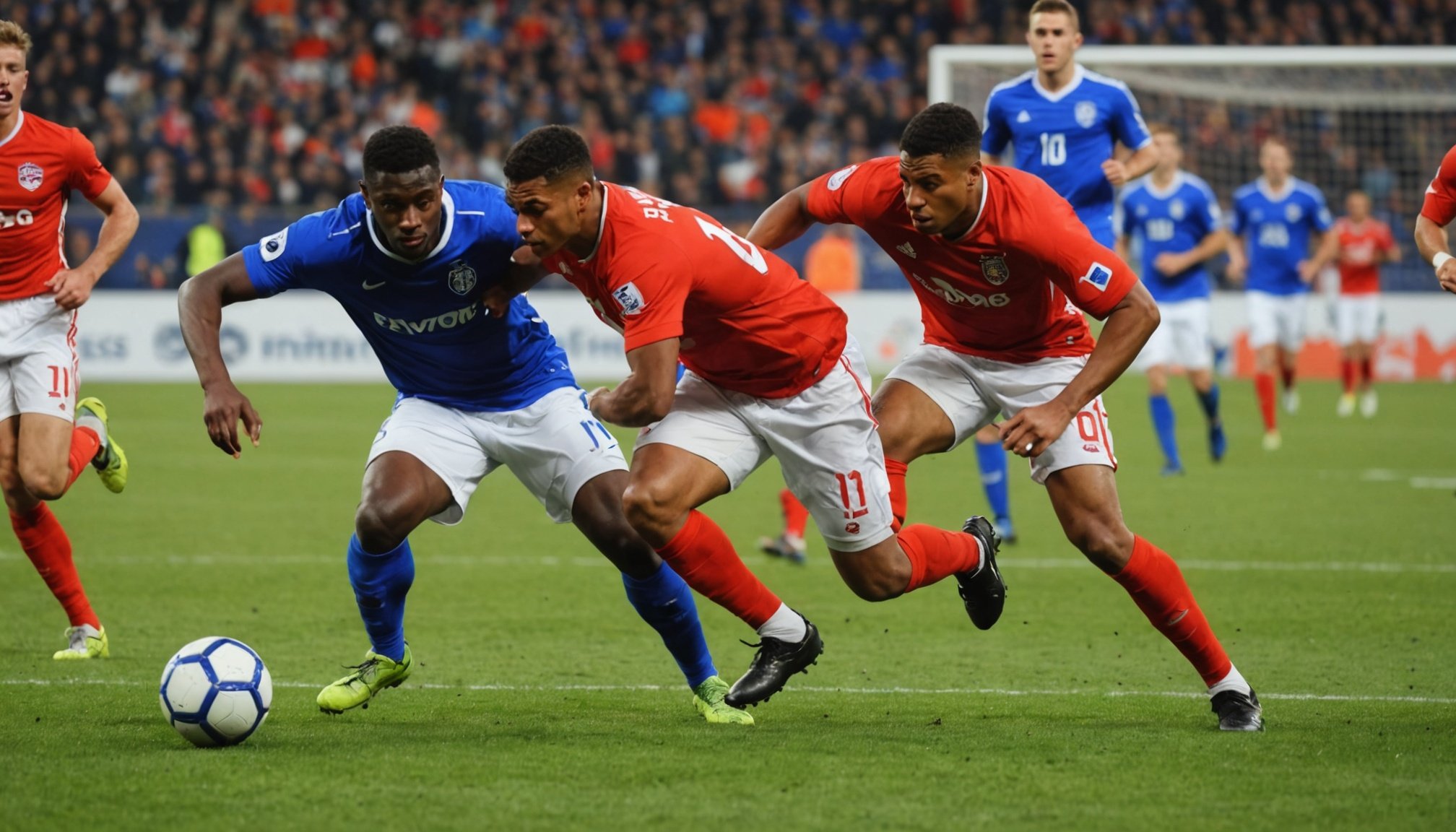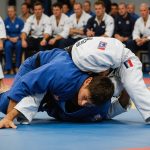Understanding Player Fatigue
Player fatigue is a crucial aspect of football performance, often overlooked but significantly impactful. It refers to the reduced capacity to perform due to overexertion, manifesting as both physical and mental fatigue. In football, this phenomenon is primarily driven by fixture congestion, where players face a schedule packed with imperative matches in close succession.
There are different types of fatigue. Physical fatigue occurs when the muscles cannot sustain the required effort, leading to decreased speed and agility. Mental fatigue typically follows, affecting decision-making abilities and overall concentration on the field. Both types of fatigue seriously compromise a player’s ability to deliver optimum performance.
This might interest you : Essential Strategies for Coaches to Cultivate Team Unity in Diverse UK Football Teams
Fixture congestion exacerbates this issue, challenging players to maintain peak performance levels over several matches without sufficient recovery time. This leads not only to reduced on-field efficacy but also significantly raises the risk of injuries, hampering teams’ success long-term. Moreover, the diminished performance of fatigued players affects overall team dynamics and strategies, resulting in less desirable outcomes.
Understanding these dynamics highlights the necessity of proper rest and recovery strategies, alongside fixture management. For optimal football performance, balancing game demands with adequate rest is essential for alleviating player fatigue.
Also to discover : Maximizing Game Performance: The Power of Biofeedback for Football Players
Recovery Techniques for Players
Ensuring players have a successful recovery is essential. Adopting effective recovery strategies not only helps in rest and recuperation, but also in injury prevention.
Importance of Active Recovery
Engaging in active recovery is notably beneficial for players. After matches, low-intensity activities such as walking or cycling aid the recovery process. These activities increase blood circulation, promoting healing and reducing muscle soreness. Many professional teams prioritize this method to optimize player’s downtime and ensure they’re fit for the next challenge.
Sleep and Its Role in Recovery
Quality sleep significantly impacts recovery. Athletes are often advised to aim for 7-9 hours of sleep each night to facilitate muscle repair and enhance performance. Strategies like maintaining a consistent sleep schedule, creating a relaxing bedtime routine, and minimizing screen time before bed can greatly improve sleep quality.
Physiotherapy and Massage
The role of physiotherapy in muscle recovery is indispensable. It assists in relieving pain, enhancing mobility, and accelerating healing processes. Similarly, regular sports massages can significantly benefit players by reducing muscle tension, improving circulation, and aiding in overall recovery. These techniques undoubtedly contribute to a player’s long-term fitness and performance.
Training Adjustments During Busy Fixtures
In the world of sports, a hectic match schedule demands precise training strategies to maintain peak performance. Effective workload management is key for teams to remain competitive. Let’s explore how teams approach training during these challenging periods.
Modifying Training Intensity
Adapting training intensity is crucial when managing tight match schedules. Balancing the training load with the fixture list requires a delicate touch. Coaches might reduce session durations, ensuring players don’t experience burnout. Recommendations include decreasing physical stress on certain days or focusing on less demanding exercises. These adjustments keep athletes physically ready without compromising their match-day performance.
Incorporating Tactical Rest Days
Strategic rest days are vital in preventing fatigue and injury. Successful teams incorporate these days within their training routine to aid recovery. For instance, granting players rest after a demanding match can help maintain overall performance levels. These teams demonstrate that rest is as important as effort, combining tactical adjustments with skillful workload management.
Focused Skills Practice
When time is constrained, prioritising skills over intense conditioning becomes essential. Shorter, focused practice sessions can yield significant benefits. Emphasizing skill enhancement ensures athletes refine their technique and tactical awareness, ensuring they are prepared for competition without excessive physical strain.
Nutrition Tips for Optimal Performance
Understanding the role of nutrition in sports nutrition is crucial for athletes looking to maximise their performance. Athletes often require a unique blend of nutrients tailored to their specific needs. Alongside regular training, proper fueling can significantly influence their output.
Importance of Proper Nutrition
When it comes to fueling athletes, key nutrients include carbohydrates for energy, proteins for muscle repair, and fats for sustained performance. During busy match weeks, ensuring an adequate intake of these nutrients is vital. Emphasising a balanced diet enriched with vitamins and minerals helps maintain optimal health and performance.
Hydration Strategies
Hydration is a cornerstone of sports nutrition. Recommended hydration strategies involve drinking fluids consistently before, during, and after matches. Water and electrolyte solutions can stave off dehydration, which is known to diminish athletic performance. It’s crucial to adapt hydration plans to individual needs and environmental conditions.
Supplements and Their Role
Supplements such as omega-3 fatty acids and amino acids are commonly utilised by athletes to support performance and recovery. Research suggests these can aid in fatigue management and enhance muscle recovery post-training. It is always recommended to consult with a nutritionist to ensure these supplements fit personal dietary needs.
Mental Conditioning Techniques
Mental conditioning is a crucial aspect of achieving peak performance in sports, focusing on cultivating mental resilience and maintaining strong team morale. Athletes can build this resilience through various psychological strategies.
Building Mental Resilience
Enhancing mental toughness is fundamental for any athlete looking to excel. Techniques such as visualization, mindfulness, and goal-setting are commonly used. Visualization involves mentally rehearsing successful performance scenarios to boost confidence. Mindfulness practices like meditation help players stay centered and focused. Furthermore, setting achievable goals can keep athletes motivated and proactive.
Some successful teams have become paragons of mental resilience. For instance, renowned coaches have consistently emphasized the importance of mental toughness in training regimens, contributing directly to their teams’ victories.
Team Cohesion and Support
A supportive environment is critical in fostering a team’s psychological fortitude. Camaraderie among team members leads to enhanced morale. Encouraging open communication and collaborative problem-solving can significantly boost team cohesion. Regular team-building activities or informal gatherings also promote strong interpersonal bonds.
Stress Management Approaches
During intense fixtures, identifying stressors is paramount. Stress management can be effectively addressed through tailored techniques such as breathing exercises and relaxation routines. These strategies are designed to mitigate anxiety and improve players’ concentration and overall performance.
Case Studies from Professional Teams
In the world of professional football, effectively managing player fatigue is crucial. Several teams have excelled in this aspect, showcasing exemplary fatigue management examples.
Success Stories of Fatigue Management
Teams like Liverpool and Bayern Munich serve as prime examples of how professional football clubs can mitigate fixture congestion. By implementing tailored recovery protocols, they maintained peak performance and reduced injury risks. The lesson here is clear: understanding individual player needs and adapting training schedules can significantly enhance player endurance and overall team results.
Insights from Coaches and Experts
Coaches like Jürgen Klopp emphasize the importance of listening to players, as they often sense fatigue before it becomes evident physically. Pep Guardiola suggests using a data-driven approach to track fatigue and adjust strategies accordingly. Experts advocate for a balance of rest and active recovery to optimise performance through demanding seasons.
Analytical Data on Performance Outcomes
Studies consistently showcase a positive correlation between effective fatigue management and successful match outcomes. Data indicates that clubs focusing on recovery strategies often boast higher win rates, highlighting the statistical significance of structured rest periods. As seen, integrating scientific fatigue management into training regimens can be a game-changer for professional teams.











